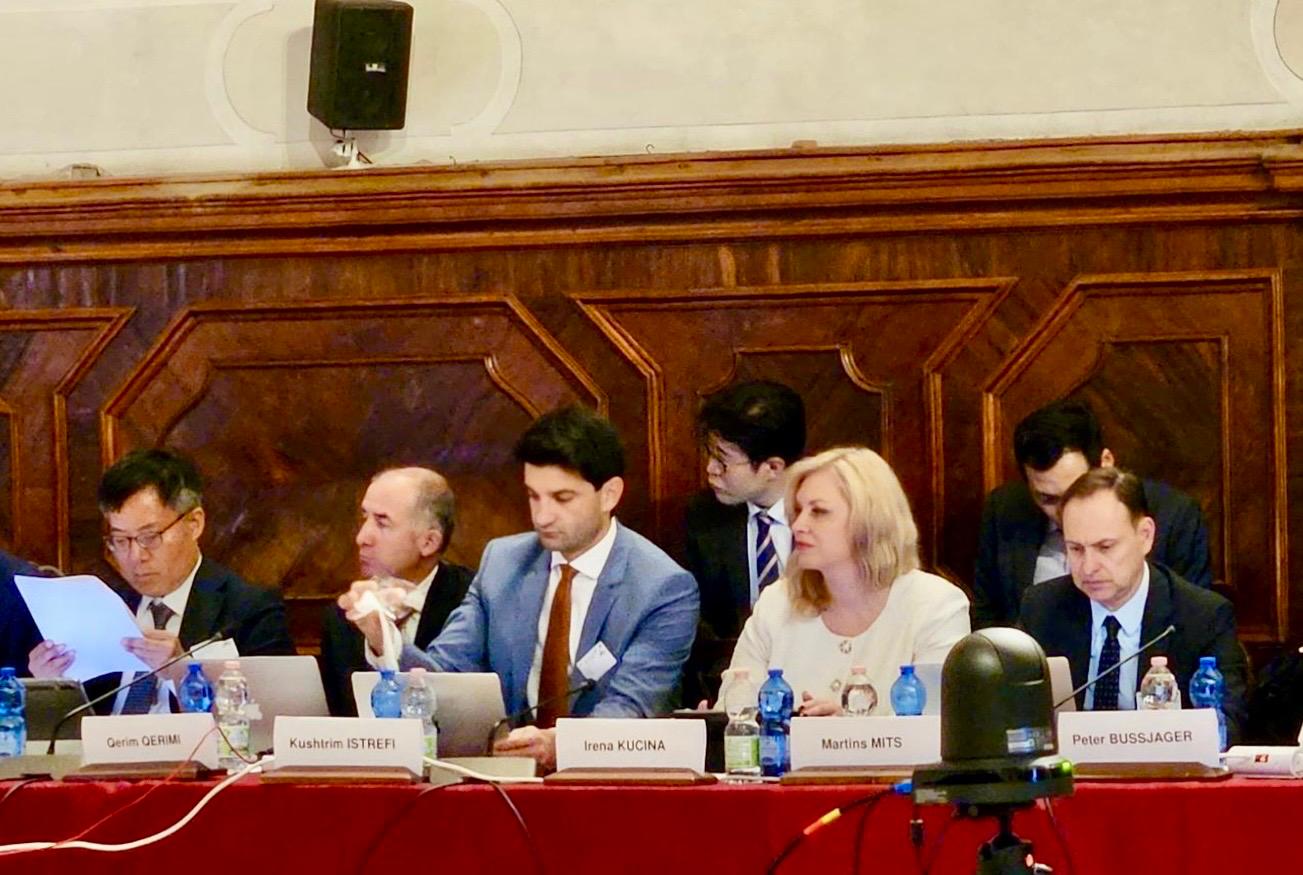Irēna Kucina: Work is currently in progress to update a tool of international importance for assessing the rule of law
The 144th plenary session of the European Commission for Democracy through Law, also known as the Venice Commission, takes place on 9–11 October, marking the 35th anniversary of its existence. The Venice Commission is the advisory body of the Council of Europe on constitutional matters where the Republic of Latvia is represented by the President of the Constitutional Court Irēna Kucina and judge Mārtiņš Mits.
A particular emphasis during the plenary session was placed on the ongoing efforts to expand the Rule of Law Checklist, which is a universal tool for assessing the performance quality of national authorities. The Venice Commission, together with its sub-commissions, is working to update the Checklist in view of emerging challenges, such as the impact of digital technologies and artificial intelligence on the rule of law, as well as the growing role of private actors. The plan is to add new sections to the Checklist, including on the digital transparency of constitutional courts and on public awareness of their reasoning. The updated Checklist will extend the Commission’s prior approach by also addressing digital governance, the realisation of human rights in the technological age, and the state obligation to ensure that both public bodies and private corporations act in accordance with the principles of the rule of law.
“European countries have at their disposal highly promising mechanisms to promote the protection of fundamental rights, the rule of law, and democracy in the long term. The Rule of Law Checklist includes important assessment items on the rule of law, legal certainty, prevention of abuse of power, equality and non-discrimination, access to justice, and constitutional review. The Checklist is a freely accessible and important tool at the disposal of every country, offering an objective and transparent way to assess the adherence to the rule of law,” pointed out Irēna Kucina.
During its 144th plenary session, the Venice Commission had on its agenda also other matters of significant relevance to the rule of law and democracy, i.e. the assessment of legislative and constitutional amendments in Hungary, Slovakia, Spain, Georgia, Armenia, North Macedonia, Ukraine, Kosovo, and Peru.
The Venice Commission has 61 member states. The role of the Venice Commission is to provide legal support to its member states by assessing, in an advisory capacity, the conformity of national legal and institutional frameworks with European standards and international experience in the areas of democracy, human rights, and the rule of law. The institutions of constitutional review may request the opinion of the Venice Commission on various issues of constitutional law. Other constitutional bodies may request opinions on reforms of the legal system, the regulation of elections and activities of political parties, the balancing of the protection of fundamental rights with national security interests, and other matters.




